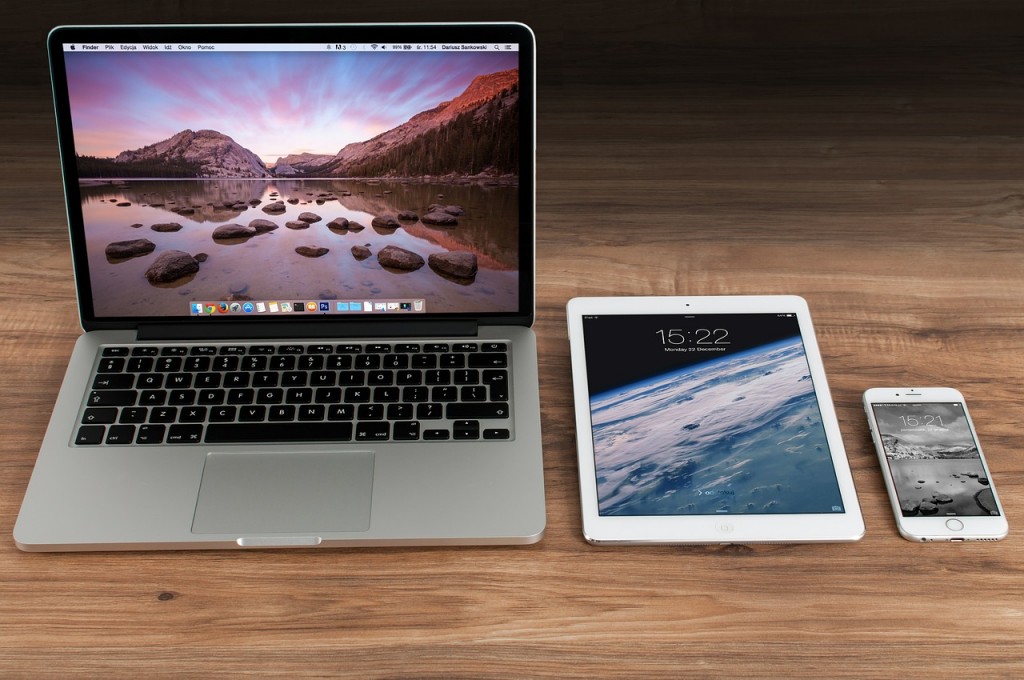What tools will you need to run a small business while working remotely?
Running your own business is in many ways a passport to freedom – the chance to pick your own hours and your own work space. At least that’s the theory. The truth is that you can only really work remotely if you’ve got the right tools to hand. In this guide, we’ll look at the essential tools you’ll need to run your small business no matter where you decide to set up office. It’ll be especially useful for anyone who’s just about to join the world of remote working, but there should be something for everyone.
The right hardware
If you want to work remotely, you need to make sure you have the right kit. It may be tempting to just grab the first laptop you see in the belief that will be enough, but by doing that you could be letting yourself in for a nasty surprise. If the hardware you’re using isn’t up to the job, then you might not be able to meet deadlines and not meeting deadlines means unhappy customers. Here are some things to bear in mind when deciding on what kit you’ll need to work remotely.
Will it do the job now and in future? You need to make sure that your laptop will be able to do everything you conceivably need it to both now and 18 months down the line. Don’t settle for a minimum spec system just to save money – it will be a false economy.
Is it portable enough? If you plan on travelling with your work gear then you need to be able to carry it around wherever you go. If you’re only planning to work remotely for short periods then there is some room for compromise – for example you could use a tablet for client meetings or quick bursts of work in locations such as coffee shops before returning to your home office to work on your main computer. However, if you’re planning on travelling the world while working remotely, then you’ll need something that is light and portable.

What else will you need? It’s easy to think that a laptop is the be all and end all of your hardware needs, but often it’s not. Will you for example need a mouse and keyboard to ensure you can type and interact with the computer quickly and efficiently? What about a headset for video calls? Sit down and think of every task that you will need to carry out while remote working, then write down the hardware you’ll need to complete those tasks and ensure that you have it to hand.
An internet connection
It may sound obvious, but an internet connection you can depend on is crucial. If you can’t get online, then you won’t be able to work remotely. In fact, even if you plan on doing the majority of your work from home, it always pays to have a backup plan in case your internet connection goes down.
Fortunately, free Wi-Fi is prevalent in most places across the UK, which means you shouldn’t have to go too far to find a connection if things go wrong. However, if you’re planning on working in an unfamiliar location for any length of time, plan ahead. Especially if that location is overseas. Before you head to your next destination, identify several potential locations which offer you an internet connection – that way if there’s something wrong with one, or even two places where you want to work you have a range of other locations to choose from.
It might also be a good idea to invest in a 4G phone which you can use as a personal Wi-Fi hotspot as an extra backup. It will only be useful in selected parts of the UK, but if you’ve got 4G coverage then it makes sense to take advantage of it.
The right space to work in
Just because somewhere has an internet connection, that doesn’t mean it’s a viable work space. Assess your needs honestly – although working all day in a coffee shop may sound appealing, is it really practical? Will you be able to charge your laptop? Will you be able to concentrate? Will you spend too much money on coffee? Although somewhere like a coffee shop can provide a great space for a brief spell of remote working, or even a client meeting, it’s less than ideal in the long term.
Make sure your list of potential places to work includes locations like shared work spaces, libraries and other locations where you know you’ll be able to conduct business in a professional manner. After all, making a conference call from the local pub isn’t going to paint you in the best light, no matter how good the Wi-Fi is. Finally, you may want to invest in a pair of noise cancelling headphones so you can concentrate in peace and quiet even if you can’t be in the most tranquil location.
The right software
Email, a word processor, spreadsheets, a video conferencing tool, a collaborative working tool – the software you’ll need to work remotely is as varied as the tasks you’ll be undertaking while doing so. For this reason, it makes sense to investigate a cloud-based software package such as Office 365. The fact Office 365 is cloud-based means you can access the software tools you need when you need them even if all you have is an internet connection and a borrowed laptop. It also offers mobile apps, meaning you can quickly deal with urgent issues even if you’re somewhere were booting up a computer is impractical. You can find out more about what you can do with Office 365 by reading this guide.
The right security tools
All workers face security risks, but remote works have some extra issues thrown in just for them. When you’re working remotely, data security is paramount – If you lose customer data and you can’t get it back, you might go out of business. Worse, if that data is stolen you could even face a substantial fine. There are far more threats than you imagine – From viruses, to device theft, to public Wi-Fi there are a huge number of ways your data can be put at risk. That means you need to take steps to minimise the chances of that data being lost or stolen. Here’s what you need to do.
Protect – Keep anti-virus software up to date in order to minimise the risk from viruses. You should also password protect any device on which you store customer data, as well as encrypting the data. Doing so will make it much hard for someone to compromise your data, even if they are in physical possession of the device. You also need to be extremely cautious when using unsecured public Wi-Fi. If Wi-Fi is not secure, that means any data transmitted across it can be intercepted. So never send sensitive data relating to you, your business or your customers across an unsecure network.
If you do need to send sensitive data via an unsecured public network, then make sure you use a VPN. You can get details on how to set one up here.
Back up – It’s vital to do everything you can to avoid data loss in the first place, but it can and does happen. Data loss on its own is bad enough, but if you haven’t got a backup of the data you’ve lost then that’s a disaster. You should also make sure that your insurance policy covers your work equipment for loss, theft and accidental damage otherwise you could be left out of pocket if something goes wrong.
Anything else? If you’re an experience remote worker, we’d love to hear what’s in your essential tool kit for maximising productivity. Please share your top tools with us in a comment.


